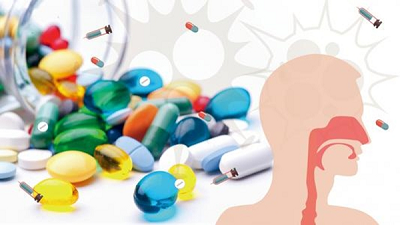Why Can't Antibiotics Help Treat Chronic Prostatitis?
Under normal circumstances, antibiotics are only effective for acute and chronic bacterial prostatitis. Taking antibiotics in patients with chronic prostatitis has little effect. Overuse of antibiotics may also lead to drug resistance.

Although a high dosage of antibiotics can temporarily suppress symptoms after entering the human body, antibiotic treatment has no repair effect on the lesion. When the concentration of antibiotics in the human body decreases, the lesions will still affect the prostate, leading to repeated chronic prostatitis.
Why are antibiotics not effective in treating chronic prostatitis?
The outside of the male prostate is covered with a layer of lipid envelope with good elasticity, soft texture, and a certain thickness. This layer of lipid envelope has a strong barrier effect on foreign substances such as antibiotics.
Therefore, for the bacterial inflammation in the prostatic capsule and the prostatic parenchymal gland, it is difficult for antibiotics to reach the lesion directly under the barrier of the prostate, resulting in poor therapeutic effect.
1. Antibiotics are hard to clear the inflammation of the prostatic parenchymal gland
The male prostate consists of the prostate capsule and the prostate parenchyma. The prostate capsule wraps the prostate parenchyma and builds a natural defense barrier. This defense barrier can shield almost all foreign substances from the prostate gland, including antibiotics. Therefore, it directly hinders the dissipation of antibiotics to the prostate parenchyma gland inflammation.
2. Antibiotics can only eliminate superficial inflammation of the prostate
Since the prostate capsule has a strong shielding effect on antibiotics, antibiotics can only eliminate superficial inflammation of the prostate. If the inflammation of the prostate capsule occurs, there is no infection and invasion of bacteria, viruses, or microorganisms, and antibiotic treatment will also not be effective.
Antibiotic abuse can help to kill the less resistant pathogenic bacteria completely. However, pathogenic bacteria with strong drug resistance continue to survive and multiply. In the process of reproduction, on the one hand, pathogenic bacteria with strong drug resistance will pass on their drug-resistance genes to the next generation. On the other hand, based on inheriting the first-generation drug-resistant genes, the newly-born pathogenic bacteria, under the repeated attacks of antibiotics, will also continuously mutate and strengthen their drug-resistant genes.
Therefore, the more antibiotics have been taken, the stronger the drug resistance of pathogenic bacteria becomes, making treating chronic prostatitis more and more difficult.
How to treat chronic prostatitis?
Patients with chronic prostatitis can take herbal medicines such as clear heat, detoxifying, promoting blood circulation, relieving pain, and diuresis, and removing stranguria, such as diuretic and anti-inflammatory pills. Traditional Chinese medicine has a good effect on treating chronic prostatitis, which can eliminate inflammation and relieve the discomfort symptoms of patients.
What should patients with chronic prostatitis notice?
1. Drink plenty of water. Patients usually drink plenty of water and increase the frequency of urination, which can dilute urine concentration and reduce prostate stimulation. At the same time, don't hold back your urine, as holding back your urine for a long time can cause prostatitis.
2. Exercise more. Prolonged sitting can lead to poor blood circulation, compressing the prostate gland and causing inflammation. Patients should exercise properly to enhance their physical fitness and improve their immunity.
3. Eat a balanced diet. A balanced diet is of great help to men in preventing acute prostatitis. Regular consumption of spicy and greasy food will lead to hyperemia of the sexual organs, oppression of the prostate gland, aggravation of dysuria, and prostatitis.
4. Work and rest regularly, and do not stay up late. Excessive exertion can lead to weak urination, causing difficulty urinating. In addition, pay attention to cleaning private parts, especially the glans and foreskin, and try to wash them with warm water every night. Do not wear tight underwear.
Recommended Readings:
How to Prevent Prostatitis: Avoid Holding Back Urine
Prostatitis Often Challenging to a Bad Mood
Can Patients with Severe Prostatitis Consider Removing the Prostate?



